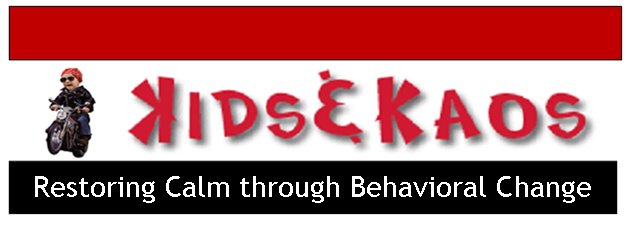Taking your 2 or 3 year old out to a restaurant can be a rewarding experience, but it can just as easily turn out to be challenging, to put it mildly! When it turns into the latter, I'm challenging you to see it as an opportunity to have a positive experience by being aware of his developmental needs.
At this age your child is developing a sense of mastery over simple social skills (simple is defined by adults, but very complex for him), and beginning to be aware of his emotions. In this stage it's easy for him to be overwhelmed and over-stimulated, especially by something as stimulating as dining out, and tantrums and rages are his way of showing emotional overload. Your reactions to his behavior will determine how well or poorly he masters the social and emotional skills required of him, as well as how proud or ashamed he feels about himself. It's important that parents understand what's going on behind the tantrum - what his behavior is telling us that his words can't - and respond with compassion, guidance and help, just as we would if he fell and scraped his knee and needed a band-aid and a hug.
If the dining experience mentioned above turns out to be one where your toddler has a meltdown, understand that he is in danger of embarrassing himself with his uncontrollable public show and it can actually be very frightening for him. He needs to know that the adults around him can remain in control no matter how badly he "loses it". He's fragile right now and you need to be his "rock".
Start by taking him somewhere private, give him assurance that you know he can calm down and you'll wait with him while he does (don't berate him, just be there for him). Hold him if he'll let you, let him climb onto your lap if he wants, and as he begins to calm down, praise him for trying hard. When he's ready - after he's been at his normal energy level for 2 or 3 entire minutes, say you'll take him back to the table, but that if he needs you to help him calm down again, you will be happy to return to this quiet place with him. Keep the tone positive and reassuring. He's accomplished a lot by calming down and should be allowed to feel proud of himself. If you find it hard to be patient while doing this, it might be helpful for you to compare it to putting him on the BRAT (bread, rice, apple juice, and toast)diet when he's recovering from the flu. It's just what he needs and it's just what you do, and you don't get angry doing that).
If, when you rejoin the party, someone makes mention of his behavior, redirect the conversation to how proud you are of his ability to calm down. Put-downs or recriminations at this point - or at any point - are psychologically and emotionally damaging. Children live in the moment and if it seems as if the incident never happened, to him it's over and he's moved on. There's no need to dredge it up. To allay any fears that helping your child in this way can be a disguised way of giving in, rest assured that's not the case. What you're actually doing is setting a firm boundary, holding him in a psychological and emotional embrace that is every bit as needed and effective as a physical one. Although he'll probably resist some of the limits and boundaries you set, he does need them and any resistance he shows is normal but not to be given in to. Giving in means you've handed him back the control that you should have, control he can't possibly handle. If you sincerely believe that your toddler is trying very hard to learn an enormous number of things every day, rather than seeing him as "messing up" when he doesn't have complete mastery of a skill yet, you will be giving him a wonderful gift and discipline in his teens will be a breeze!
Tuesday, January 13, 2009
Subscribe to:
Comments (Atom)





